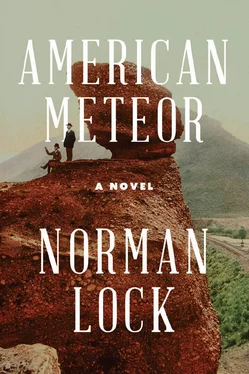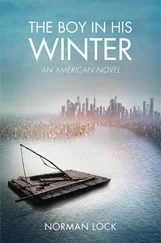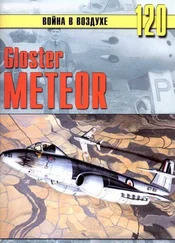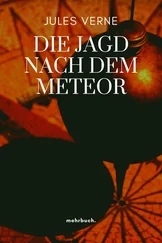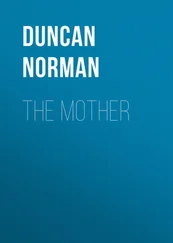The wonder of it was how it came to be. My camera was lying in the tall grass, where I’d left it in my rush to scrabble up the hill and dispatch Yellow Hair to the corner of hell reserved for him since the Washita River campaign. The Indians never saw it, although it wasn’t far from where Crazy Horse and I had searched each other’s hearts or brains or whatever organ is capable of registering the minutest tremors of another’s soul, which must be like the crystal in a radio or the lens of a telescope down which far-flung stars are borne. I’ve never been sure how the trick was accomplished that knotted our two minds together — not for eternity, which is only a fancy of theologians, sentimentalists, and wives, but for the year after Crazy Horse was killed at the Soldiers’ Town on the White River. All during that year — I was going on thirty — I’d wake from sleep with a blinding headache, as if what I’d seen behind my closed eyelids — second sight — temporarily blacked out the daylight. That was in the late summer of 1877, when Crazy Horse ensnared me in his dreams of the future. I think he knew at the Little Bighorn that the summer of ’77 would be his last — the curtain was ringing down forever on the ancient ways of his people, whom he and Sitting Bull had brought together for one final act of resistance by the magnetism of their stupendous wills.
I wore my medal during the Battle of the Little Bighorn. I hadn’t put it on since my first meeting with Custer at Fort Lincoln, when I saw his self-satisfied face rising in the round moon of his hand mirror. But before we rode into the Powder River Country, I pinned it to my coat — at the bidding, I’ve always thought, of something that lies beyond the human mind and its weak influence on the world. Crazy Horse could have mistaken the tarnished scrap for a souvenir of the murder of his people and had the honor of cutting my throat. But instead, he looked at it gravely and then surprised me by asking if he could have it. I gave it to him and, in return, he gave me the medicine bundle from around his neck. Did these two talismans harmonize the vibrations of our separate hearts? You’re a medical man, Jay. What do you say?
“What you’re telling me, Stephen, has nothing to do with medicine or science.”
What has it to do with, then?
“The occult — which I don’t give a hang about. I’m surprised at you! I always took you for a sensible man.”
Maybe it’s the blood pressure. It’s elevated. I saw it in your face this morning.
“It’s too high, Stephen. I won’t kid you. You’re headed for another heart attack if you’re not careful. You be sure to take the medicine I left.”
I will, though I don’t think it will do me any good. But you’ve been a good doc and a better friend to me, Jay.
“So tell me about Crazy Horse’s picture.”
After the Little Bighorn, I didn’t return to Fort Lincoln. I was finished with the army, and, believing I had perished with Custer’s battalion, the army was finished with me. I took my camera — left the tent, chemicals, and plates behind in the prairie grass — and walked all the way to Omaha. I stayed with Edward Jackson in the Jackson Brothers’ portrait studio. I didn’t take any pictures then, but I helped him and William’s wife, Mollie, make hundreds of stereo cards of Mesa Verde and the Navaho for William Jackson, who was traveling with the Hayden Survey team in New Mexico at the time.
One day, while I was examining my camera to see if it’d been damaged in the fighting, I discovered an unbroken glass-plate negative inside. I almost threw it away. Once a wet plate dries, it’s worthless; and any image that might have been laid down on the silver is gone. But something made me develop it. I realize it’s beyond the realm of science and possibility, but the negative bore the image of Crazy Horse. It was as wonderful a find as the image of the dead Christ’s face on the Shroud of Turin, seen for the first time since His crucifixion, when it was photographed three years ago. Who can say how His face was imprinted on that ancient rag? Who can say how — whether by happenstance or the mysterious workings of fate — the image of Crazy Horse came to be on my negative? Unless.
“Unless?”
The plate was exposed by the radiance of his bones — the fat light blooming from Crazy Horse at the moment of his ecstasy.
“You read too many books of the wrong kind. What’s that you’re reading now?”
From the Earth to the Moon.
“Jules Verne again! I tell you, Stephen, he’ll drive you crazy with his fantastic notions. He’s the worse kind of author for an impressionable mind like yours. A photograph of a dead Indian chief taken by his bones! Radio, isotopes — whatever do they mean?”
Words from the future, Jay, carried backward down the stream of time in Crazy Horse’s dreams, like gold in a sluice — no, not gold, for his dreams were too ominous to be objects of desire; say, rather, that I picked them up from the gravel, like broken bits of shell. I almost knew their meaning. Almost. Let’s say I knew it the way a diviner knows hidden water by his rod: He feels it and — in his heart — knows it.
“I’ve never heard such lunacy!”
I’ve kept the secret of Crazy Horse’s picture to myself for more than twenty years. I’m only safe in telling you now because, not long ago, I destroyed the plate.
“Why would you do such a thing?”
Are you laughing up your sleeve at me, Jay?
“Not at all! I’ve always admired you as a storyteller. Nobody can beat you and Mark Twain for exaggeration and invention. It’s the only reason I’ve stayed your friend for as long as I have.”
You don’t believe a word of what I’ve been telling you.
“I wouldn’t say that, Stephen. I’m sure you’ve told a few truths, only I’d need a rocker box to separate them from the gravel of outrageous fabrications. What possessed you to spoil the negative of that Indian, if it was worth so much?”
Something tells me I’ve come to the end of my thread. The thread that sewed my life in whipstitch to Whitman, Grant, Lincoln, Durant, Jackson, Custer, Crazy Horse. I swore to him — took an oath the last time he came to me in my sleep — never to let another person see his face. In his life, he had dreamed himself onto the other side of our world — the visible one, which he knew, in his wisdom, is only shadows. It was his great gift to sift from the illusory Phantoscope of images what is real. During the year of my headaches, he showed me it; and, what’s more, he showed me the future from the vantage of the afterlife. He was a shaman, after all, and a most powerful personality — a seer, like Sitting Bull. Seers believe that the future already exists, and maybe they’re right. How else do you explain prognostications and the glimpses of it that come to clairvoyants and oracles? Crazy Horse saw almost clear to the end, and so did I, although I recollect only a fraction of what he revealed to me in dreams — his dreams, which were like a lens trained on what will happen next. what’s already happened on the other side, as though he’d been granted a fabulous and frightening look at an encyclopedia published centuries hence.
It was harrowing for me — that year of visions. I used to wear his medicine bundle to bed, afraid I’d disappear into the future or wake up insane or not wake up at all. I wish I’d never seen what lies waiting for us. Was it for this that Spotswood told me to wait? But a vision cannot be refused or denied.
“What did you see that was so terrible, Stephen?”
I’ll tell you what I remember. But first, I want to tell you about the Mexican girl I found outside Lamy. I was a mail clerk for the Santa Fe Railroad at the time. This was in 1879. I gave up the railroad — that is to say, I gave up the need to be in motion, which obsessed me my whole life — and opened the studio when I settled here in Lincoln in ’82. I contented myself with making portraits of “stiffs,” reading in no particular order books borrowed from the library, going to concerts and lectures on the Pygmies and the Hottentots, illustrated with magic lantern slides. It’s a sickness in some people, a kind of extreme restlessness: the wish to be always moving. It must be what drives so many millions to pack up and go west. I was fed up with it. Ever read anything about such a disease in your medical books?
Читать дальше
